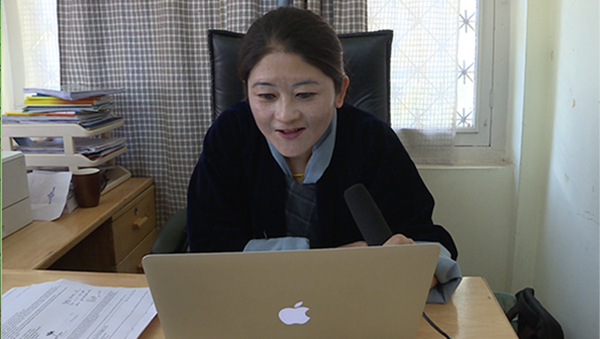 Family-related issues are the most common cause of stress among young people today. According to statistics from the National Commission for Women and Children (NCWC) and Career Education and Counseling Division (CECD), more than 200 young people between the age group of 10 and 24 sought counselling services over their helplines between March and August this year.
Family-related issues are the most common cause of stress among young people today. According to statistics from the National Commission for Women and Children (NCWC) and Career Education and Counseling Division (CECD), more than 200 young people between the age group of 10 and 24 sought counselling services over their helplines between March and August this year.
Chador Dema is a professional counsellor with the NCWC. In a day, she attends to at least three calls from young people seeking counselling service on the Commission’s helpline.
She said, in most cases, it is the children who are witnessing some form of domestic violence in their homes.
“Most calls are from children who are witnessing domestic violence at home. They call us to seek our support. We have some children calling us because they are bullied or are harassed in school. The first thing we do is assess the child’s situation; we see if the child is in a safe place. We advise them to stay in a safe place,” she said.
Between March and August this year, 156 young people between the age group of 15 and 19 called the helplines of NCWC and CECD’s Sherig Online Counselling. They were seeking counselling support for mental health issues such as family-related issues, stress, anxiety, addiction, substance abuse, depression and emotional distress.
Dr Chencho Dorji says this could also be because that is a transitioning stage for the children from adolescent to adult which is bound to stress them out. But what is more worrisome, he said, is the fact that most young people who called the helplines cited family issues as the cause of stress.
“There is no point in just counselling children if you don’t touch the parents because in our clinical mental health we always say children are a symptom of family dysfunction. So if the father and mother are always fighting or they are violent, children will be affected sooner or later. They will show the symptoms and then they are brought to the hospital. But we need to know the cause of the problems which in this case seem to be the parents. Unless we address the parents’ problems, just touching the children is just giving symptomatic treatment because you have not addressed the root problem,” said Dr Chencho Dorji, a Psychiatrist with the JDWNRH.
Although the NCWC and the CEDC say they assess the cases and then refer if it is beyond their capacity to handle, Dr Chencho says there should be a holistic approach to addressing the root cause of the young people’s mental health issues.
“In situations where the risk is high, we go for a home assessment. In doing so, we look beyond the child’s problem. We assess the family background because in certain cases there are underlying problems within the family which triggers the child’s problem. Then we try to sort the issues of both the child and the family,” said Sonam Yangchen, a Counsellor with the NCWC.
“We provide the service online and we do an assessment and then if we find that it is beyond our capacity and that we have to refer to other relevant agencies, we do the referral,” added Reena Thapa, the Chief of the CECD under the Education Ministry.
As a holistic approach to address the mental health issues facing the young people, the National COVID-19 Mental Health and Psychosocial Response Team have proposed the Health Ministry and the Education Ministry to sign a memorandum of understanding. The MoU proposes to allow school counsellors to reach out to the communities to delve into the root causes of mental health issues of students by going beyond counselling services in schools. It also proposes that mental health facilitators in hospitals across the country will train the school counsellors on various aspects of clinical management of mental health issues.
Phub Gyem








